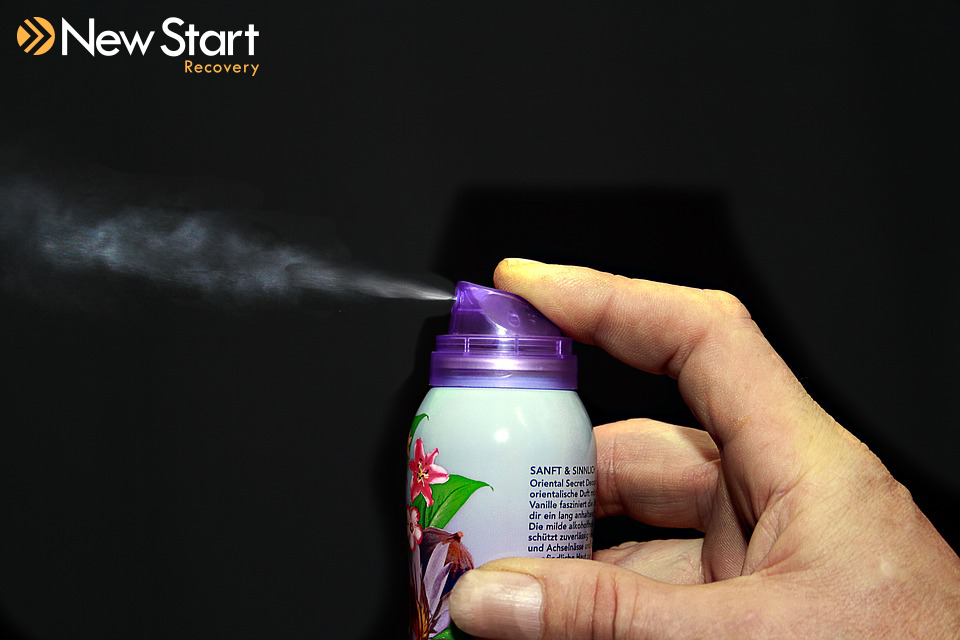What Does Huffing Mean?
Huffing is a term used for inhalant abuse. A lot like substance abuse or alcohol addiction, people can have a huffing addiction. This means that people are intentionally inhaling chemical vapors to feel a euphoric, or “high” effect. This can include a wide variety of substances, as common as the household products you have in your cupboards.
When someone uses inhalants, large amounts of toxic chemicals enter the lungs and pass to the brain. When the chemicals enter your brain, they start destroying your brain cells which results in dangerous short term and long term side effects.
Types of Inhalants
The term inhalants refer to the various substances people take only by inhaling. Inhalants can include solvents, aerosol sprays, gases, or nitrites. It’s extremely dangerous and poisonous and can lead to addiction or it can become life-threatening.
Examples of Household Inhalants
People who huff inhalants breath them in through their mouth or nose. There are several different types of inhalants that users can use to huff. Some include:
- Paint thinners or removers
- Dry cleaning fluids
- Gasoline
- Lighter fluid
- Glue
- Spray paint
- Propane Tanks
- Whipped cream aerosols
- Leather cleaner
- Room odorizer
Side-Effects of Huffing
The side-effects of huffing are similar to alcohol, in the sense that you could feel drowsiness, lightheadedness, or a loss of inhibition. But, there could also be more severe side effects, such as:
- Delusions
- Hallucinations
- Apathy
- Impaired Judgement
- Depression
- Mood Swings
- Weight Loss
- Lack of Coordination
- Weakness
- Irritability
- Inattentiveness
Huffing can also lead to a dependency which becomes an addiction. There’s also a possibility of overdosing on inhalants. Overdosing occurs when a “person uses too much of a drug and has a toxic reaction that results in serious, harmful symptoms or death.” Symptoms of overdose can include seizures or coma.
Huffing Withdrawals
An addiction to inhalants is just like any other addiction. People might try weaning off of it or doing it less, but withdrawal symptoms could keep you coming back for more. An addiction to inhalants works just the same, and you could go through serious withdrawal symptoms trying to quit on your own.
Withdrawal symptoms may include:
Nausea
Problems sleeping
Loss of appetite
Mood changes
Sweating
Hallucinations

How Do You Get Treatment?
If you’re willing to seek treatment and stop taking inhalants, you should first consult your doctor. The process of quitting can be very difficult and it’s best to get professional help and advice. You can also seek treatment at a drug treatment center, like New Start Recovery. Inhalant withdrawal symptoms are both psychological and physical. If you have a long history of inhalant abuse, you could experience more severe withdrawal symptoms.
If you’re struggling to detox from inhalants, you can call us at 855-737-7363 and we can discuss your options. We understand addiction and treatment and can help you find the right path to take in your recovery.

